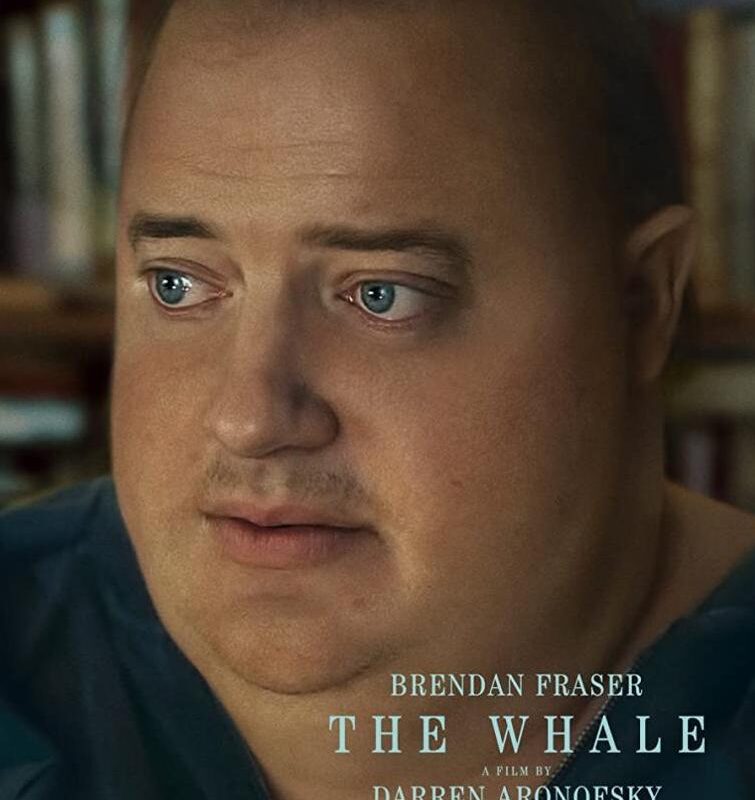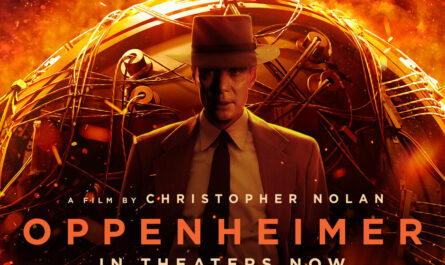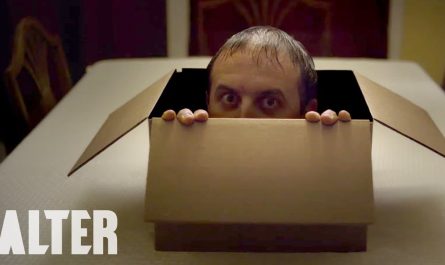It’s April and by now, you probably already watched The Whale, written and directed by Darren Aronofsky. This film has been a bit controversial with people labeling it as fatphobic and with Brendan Fraser’s return to Hollywood. While this film is incredibly emotional, it also contains an important message that I believe some are disregarding. One of the main themes that stood out the most to me is eating disorders.
To briefly recap, the film is about Charlie (Brendan Fraser), an obese gay man who teaches English writing courses. He is constantly reading an essay about the whale in Moby Dick that says
In the amazing book Moby Dick by author Herman Melville, the author recounts his story of being at sea. In the first part of his book, the author, calling himself Ishmael, is in a small seaside town and he is sharing a bed with a man named Queequeg…
…and I felt saddest of all when I read the boring chapters that were only descriptions of whales because I knew that the author was just trying to save us from his own sad story, just for a little while.
Which later turned out to be an essay written by his daughter, Ellie (Sadie Sink), whom he abandoned at the age of eight because he fell in love with one of his students and Ellie’s mother, forbade him to see her. Even though he wanted to be a part of her life. I think as a 14-year-old, who was abandoned by her father, Ellie accepted her sad story. Probably her defiance against the authority is a distraction from her own sad story, just as she described it in her essay. At some point, projecting herself on Moby Dick led her to understand the situation and drift her attention from it. Charlie kept the essay as a sign of him accepting reality, keeping in mind the desire to share care, time, and interests with Ellie, even if he couldn’t. Reading that essay repeatedly also gave Charlie a sense of confidence that Ellie was growing into a smart, beautiful, and good person, even though he wasn’t there to teach her that. Mary (Samantha Morton), Ellie’s mother, gave him the essay for the same purposes, as a recognition of Charlie’s, Ellie’s, and her story.
Our protagonist is morbidly obese and aware of the risks it carries. He refuses medical attention and treatment, knowing his blood pressure is around the 200s and heart failure is extremely probable. His nurse friend, Liz (Hung Chao), is constantly taking care of him and helping him deal with his complications. She also gets groceries for him, encourages him to seek medical help, and offers him company when she can. One day, a New Life missionary, Thomas, visits Charlie and tries to help him. Eventually, he finds a bible and Liz explains he should leave Charlie alone because he doesn’t need nor want help from missionaries. Eventually, it is revealed that Charlie’s boyfriend, Alan, became part of the missionaries, and because homosexuality was considered a sin he felt he had something wrong. His father couldn’t accept him and arranged a marriage with a girl. Alan still believed in his church and went to South America as part of the missionaries but didn’t want to return and face his father. When he came back with a male partner, his father kicked him out of the church. Consequently, he fell into a depression that gave him an eating disorder where he couldn’t eat or sleep, as opposed to Charlie. One day, his body was found on a lake. While Alan’s father said it had been an accident, Liz and Charlie suspected he committed suicide.
In one of her worries, Liz explains she doesn’t want to go through the same experiences she faced with Alan, with Charlie. My interpretation of this is both Charlie and Alan were broken-hearted men, who weren’t allowed to love each other, and one lost the other because of it. No matter the order of things, they were both deeply depressed due to a society that doesn’t allow people to love one another unless they follow conservative, religious, and heteronormative rules. Their depression gave them an eating disorder, which was probably a way to cope with pain. I believe it is also a sign of self-harm and not fearing death because they’d rather die than live without love, respect, or acceptance.
An example of this coping mechanism is whenever Charlie feels distressed, he increases his food intake. Ellie had been spending some days with him because they agreed Charlie was going to do Ellie’s homework if she promised to write something real. Charlie was hesitant in reading an authentic essay because he believed his students are pretentious and ingenuine. He thinks they follow unspoken norms about writing instead of letting themselves loose with their thoughts and feelings, no matter the repercussions. To him, Ellie’s essay is proof of her unapologetic true self and that is why he, at least, wants to see the real Ellie and not the tough, cruel, and egotistical façade she’s been trying to put on. When Mary found out her daughter and ex-husband had been spending time together, she visited Charlie and expressed her concern and disapproval. That same day, Ellie drugged Charlie with sleeping pills, Liz yelled at Thomas to stop trying to bring religion into Charlie’s life, and Ellie and her mom argued raising their voices at each other. This conflict, ambivalence, and aggressive environment pushed Charlie to his limits, leading him to cope with food. After everyone left, he ate his three regular pizzas with all sorts of dressings, he ate candy, chocolates, and everything he could. Then he threw up.
I’m no therapist, but as someone who has dealt with an eating disorder, I was told, in psychoanalysis, food represents affection. In our unconscious, we are trying to look for love, acceptance, peace, and stability by forcing that affection or rejecting it. Another word for that increased food intake is called Binge Eating. According to the United States National Eating Disorders Association, Binge Eating Disorder (recognized in the DSM-5) is
A severe, life-threatening, and treatable eating disorder characterized by recurrent episodes of eating large quantities of food (often very quickly and to the point of discomfort); a feeling of a loss of control during the binge; experiencing shame, distress, or guilt afterward; and not regularly using unhealthy compensatory measures (e.g., purging) to counter the binge eating (NEDA, n.d.).
What NEDA means by “using unhealthy compensatory measures” includes provoking one self’s vomit, excessive exercise, prolonged fasting, fixation on healthy eating, and more. These practices are also a sign of other eating disorders such as Anorexia Nervosa, Bulimia Nervosa (e.g., Lady Diana was open about dealing with both Anorexia and Bulimia), Orthorexia, Laxative Abuse, Pica, Compulsive Exercise, etc.
According to the Eating Recovery Center, around 1.5% of women and 0.3% of men, globally, experience Binge Eating Disorder in their lifetime. The American Journal of Clinical Nutrition found in 2019 that between 2000 and 2018 eating disorders increased, worldwide, from 3.4% to 7.8% of the population. What do you think is causing this?

I believe one of the reasons why people are experiencing eating disorders more often is due to societal expectations of being perfect, outstanding, and having a magnificent body. Whether we accept it or not, social media has increased our narcissistic demands for attention. We base our importance on external validation and the amount of popularity we get from those platforms, and, of course, what better way to get that acceptance and sense of embracement than through an exceptionally hot body?
Another reason why eating disorders are more present than twenty years ago is the direct link towards mental disorders like anxiety and depression. As someone who has been dealing with anxiety and depression for almost a decade, I can tell you that when I was at my lowest point emotionally and energetically, I couldn’t force myself to eat. Eating and sleeping are so difficult whenever I am experiencing strong and prolonged episodes of distress. Every time I eat, I get nauseous and my anxiety increases. Avoiding food and extended fasting are my ways of coping and trying to manage my unstable self. Nonetheless, as soon as I feel guilty for not eating or my feelings of loneliness increase, I tend to go to convenience stores and buy chocolates, flaming hot chips, classic chips, sweet popcorn, candies, you name it. Binge-eating all these foods soothe feelings of despair or hopelessness. However, guilt and digestive issues kick in a couple of minutes later.
Maybe the increased cost of living, high rates of unemployment, and financial and health crises are contributing to a new generation of people with eating disorders. For example, there is no coincidence that Japan is the country with the highest rates of eating disorders, work exhaustion, work excess, beauty standards, and suicide. I’m not trying to shame the Japanese, I just think they are dealing with the same issues almost every country is struggling with, but their rates are higher, and we should focus on what is happening there, question ourselves, and look for solutions to improve people’s health and living quality.
Now… do I think this movie is fatphobic? No. I don’t think this movie is particularly trying to shame those with morbid obesity. I truly believe it is trying to express the difficulties behind an eating disorder that caused a man’s obesity. For the movie to be fatphobic, there must be victim blaming. Many fatphobic individuals blame fat people for their physicality while ignoring the numerous reasons which cause a curvy, overweight, obese, or morbidly obese body. Fatphobia jumps to conclusions and determines fat people are fat because they are “lazy” and “eat too much”. These beliefs completely disregard health issues such as hypothyroidism, hypoglycemia, eating disorders, and mental disorders. They also pass over the fact that not everyone is privileged enough to afford a healthy diet and time to exercise. I mean, people work two or three jobs to pay the bills, and they are not going to have time to cook something healthy or go to the gym. It is incredibly ignorant and uninformed to judge someone for their looks.
With that being said, I still don’t believe this movie is fatphobic. It never blames Charlie; it even acknowledges Charlie is a victim of a homophobic system. It recognizes Charlie’s vulnerabilities and difficulties to overcome depression. This film allows viewers to see what’s behind closed doors and what makes people harm themselves. Even though I am not obese, I cried intensely with Charlie’s experience because I saw myself in him for a bit. Our stories are entirely distinct. Nonetheless, some of our defense mechanisms are similar. For one, avoiding pain through harming ourselves with food. This all makes me realize the impact of the human mind over oneself, but most importantly… the power of food.






This review is so informative and very well put together. Genius
Thank you so much, Thomas!